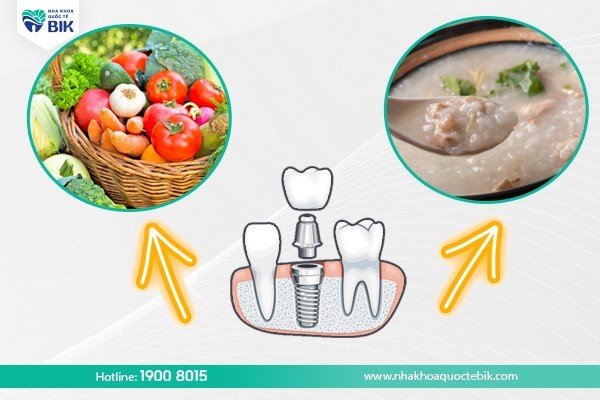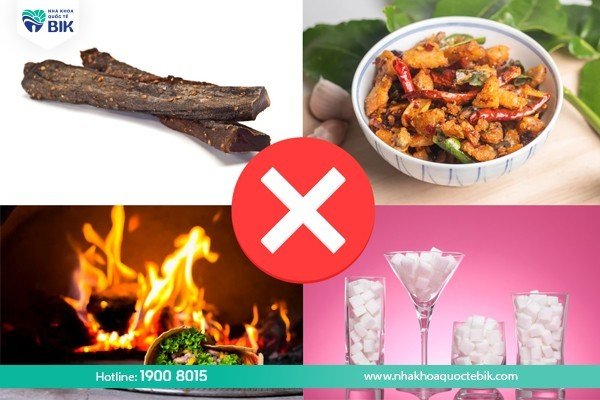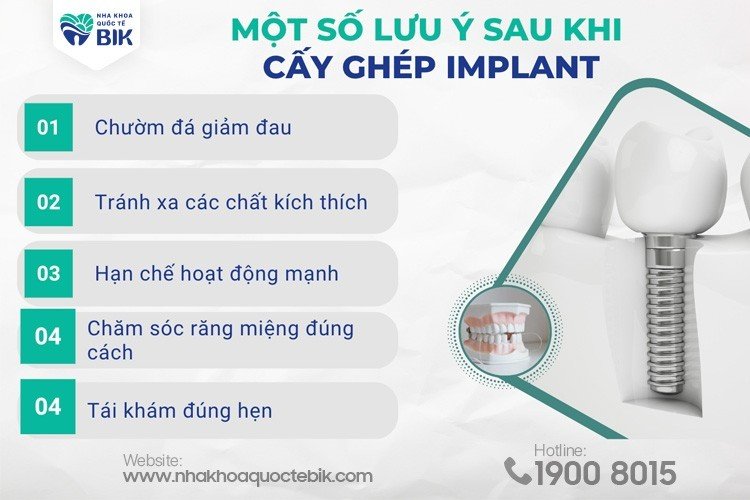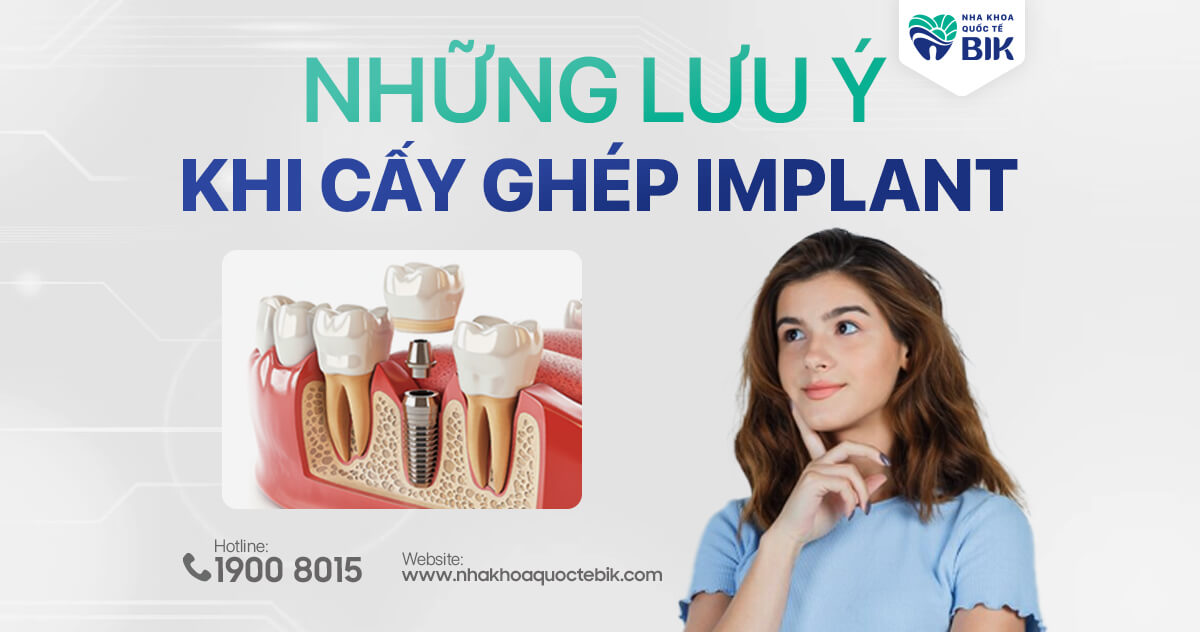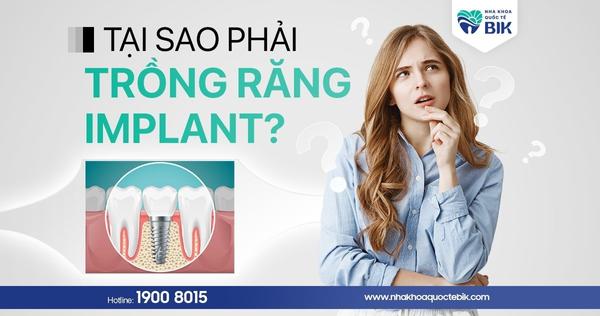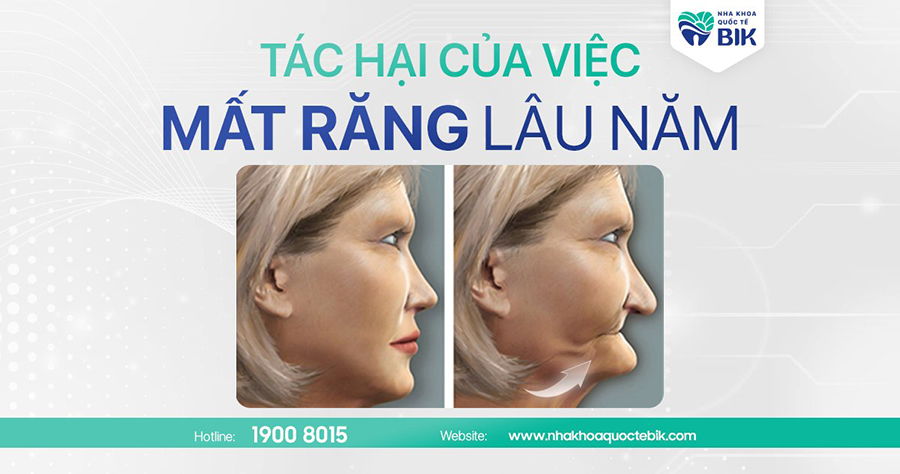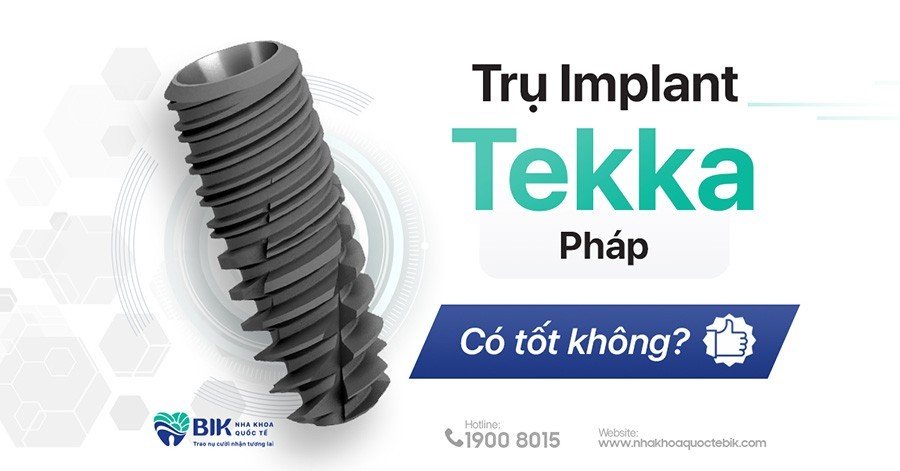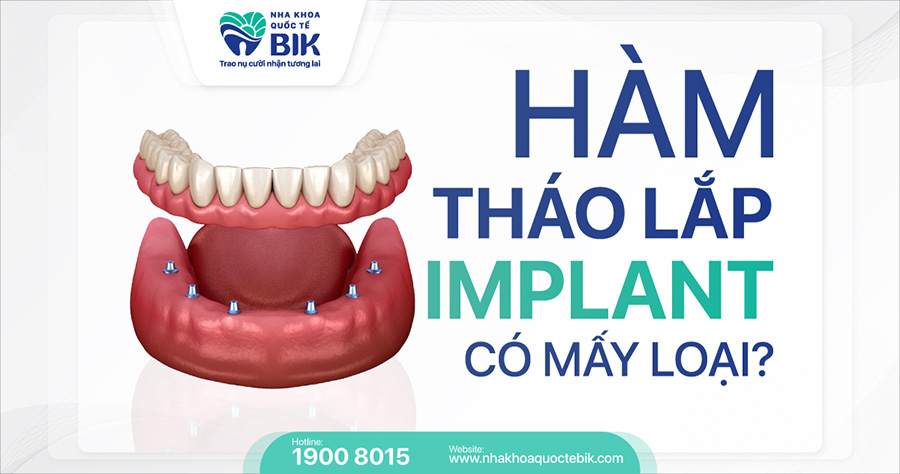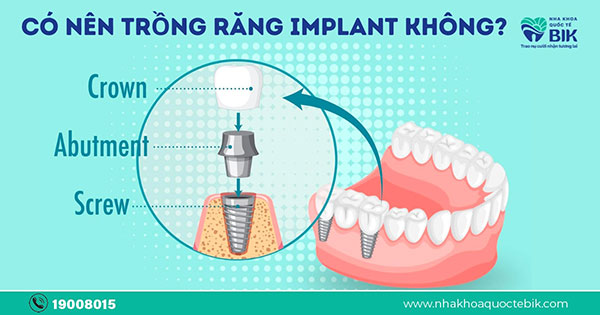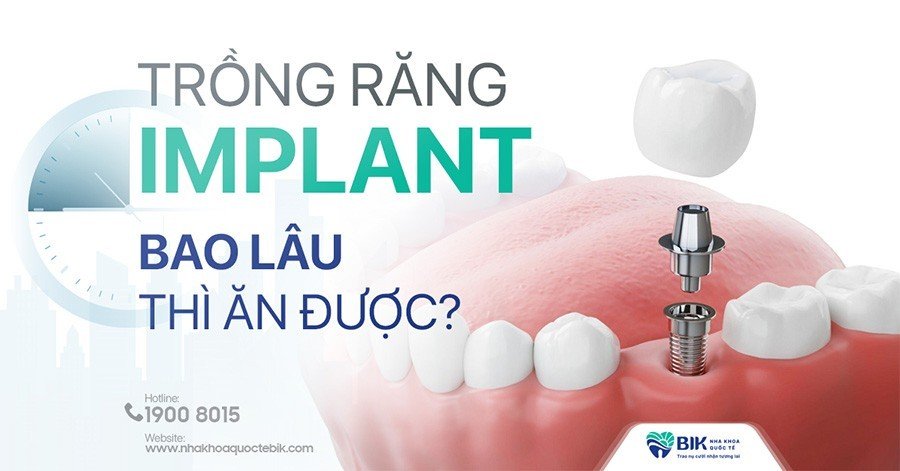
Dental implants are the best tooth restoration solution today, even for people who have lost teeth for a long time. Because during surgery, the gums will be affected so that the implant can be placed in the jawbone, many people wonder how long it takes to eat after dental implants. In fact, this depends entirely on each person’s constitution and healing speed, because only when the implant is completely stable in the jawbone can you eat normally.
1. How long does it take to eat after dental implants?
In fact, implant surgery is just a simple minor surgery, so doctors do not require too strict about eating and drinking. However, patients still need to abstain from eating during the first period after the implant.
Usually, in the first hour after surgery, the wound is still bleeding, so the patient cannot eat or drink any food. In the next 3 – 5 hours, the patient can use soft, liquid foods such as porridge and milk to recharge the body.
The period of 3 – 6 months later is the process of the Implant being integrated into the jawbone, so the patient still has to eat soft foods, avoiding using too much chewing force to affect the Implant.
The patient can completely comfortably eat the foods he loves when the Implant has existed stably and firmly in the jawbone and the doctor has installed the porcelain crown on top
2. What should you eat after implanting a tooth implant?
In the first 3 – 6 months after implanting teeth, patients should prioritize choosing the following foods:
2.1. Soft, liquid foods
You should choose some soft, liquid foods that can be easily digested without using much chewing force such as porridge, soup, mashed potatoes, … to add to the daily menu to help protect and maintain the stability of the implant in the jawbone.
2.2. Drinks containing lots of vitamins
Not only do patients need to ensure they drink enough 2 liters of water every day, but they should also supplement with more vitamins from fruit juices, vegetable juices or milk in the early period after implant surgery.
2.3. Foods rich in essential nutrients
When the implant begins to stabilize and no longer feels pain, patients can supplement the body with the necessary nutrients from fruits, vegetables, meat, eggs, fish, milk, etc.
3. What should you avoid eating after implant surgery?
Although there are no strict dietary requirements, patients after dental implant surgery need to abstain from the following foods to ensure a quick healing process:
3.1. Foods that are too hard or chewy
The wound at the implant site after surgery needs a certain amount of time to fully recover and be healthy as usual. Eating food that is too hard or too chewy can accidentally cause some impact on the wound, causing pain or inflammation.
3.2. Food that is too hot
Do not eat food or drink drinks that are too hot because high temperatures will dissolve blood clots at the implant site, causing the bone area where the implant is directly affected, causing prolonged pain.
3.3. Spicy food, sweet drinks
Some spicy foods should not be used while waiting for the wound to heal. Eating spicy food will cause pain or redness in the gum area where the implant has just been placed. In addition, foods or drinks containing a lot of sugar can also cause some negative effects that prevent the wound from regenerating.
3.4. Pay attention to small food pieces
Small food pieces such as bread crumbs, potato crumbs, nuts, cookies, etc. can easily fall into the gaps between teeth as well as the implant site and cause damage to the sensitive gums,
4. Some important notes after implant surgery
To speed up the healing process and avoid causing any complications that affect health, customers should note the following important things after implant surgery:
4.1. Ice pack to reduce pain
In the first few days after surgery, customers should continuously apply ice to the outside of the cheek at the implant site to help reduce swelling and pain effectively. If necessary, the doctor will prescribe pain relievers to make the patient feel more comfortable. However, it is important to note that you should not use any medication without a doctor’s prescription to ensure safety.
4.2. Stay away from stimulants
Absolutely stay away from stimulants, especially cigarettes because they contain Nicotine, which makes the wound take longer to heal. In addition, it can also lead to inflammation if not cleaned properly.
4.3. Limit strenuous activities
When overworking, the body loses energy, which also affects the wound’s recovery process. Therefore, customers should rest enough so that the implant and jawbone can quickly integrate with each other.
4.4. Proper oral care
Usually, the patient will be given detailed instructions by the doctor on how to clean their teeth after implant surgery. Brush your teeth at least twice a day, regularly use saline to ensure that the oral cavity is always clean, preventing bacteria from forming and attacking the wound.
4.5. Re-examination on schedule
Re-examination regularly according to the doctor’s appointment to check the wound as well as the bone integration process. If any problems arise, they will be resolved quickly and promptly.
So with the information provided above, BIK International Dentistry hopes that you have a specific answer to the question of how long after implant surgery can you eat. To speed up the healing process and quickly eat your favorite foods, customers should choose to have dental implants at a reputable dental facility with a team of experienced and professional doctors.

